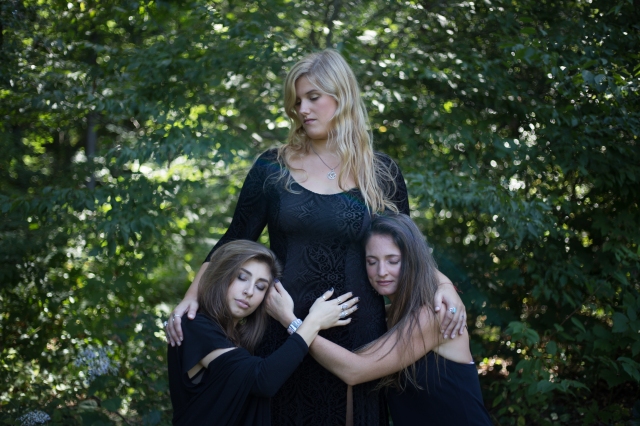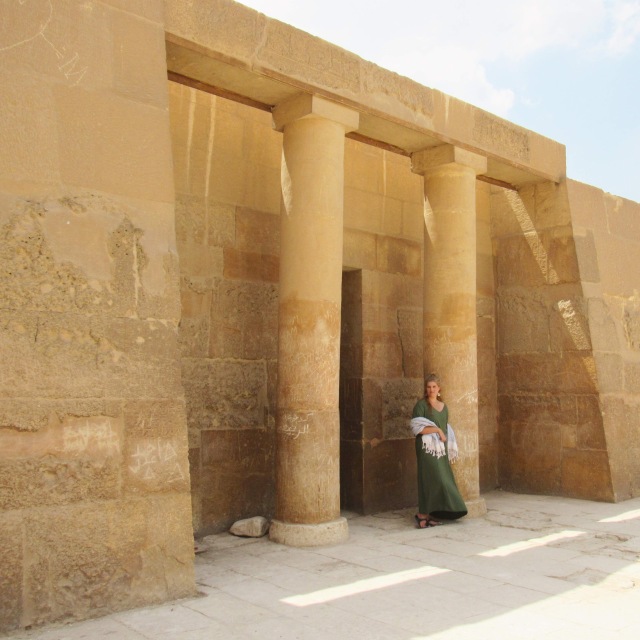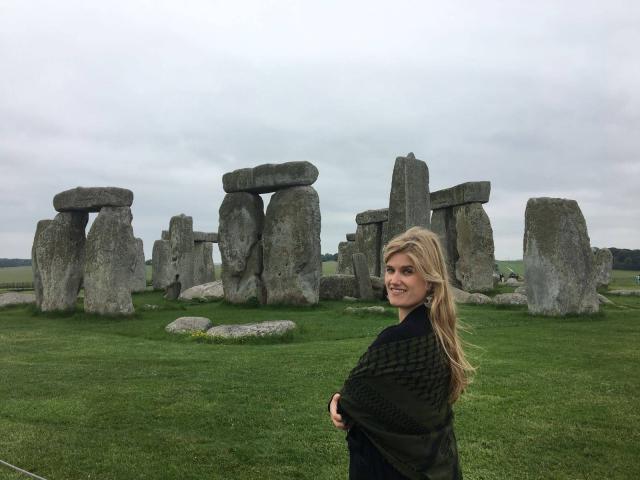
Between Pantheacon in San Jose and my trip to Arizona, I’ve been traveling a lot recently. Both of those trips in particular were very spiritually charged. Thousands of pagans were packed into the San Jose Doubletree for Pantheacon, and Arizona was electric with the energy of the vortexes, yet heavy with the imprint of trauma inflicted by colonizers on native folks and on the land. During my travels, I tried my best to honor the land I was visiting and turn my trips into sacred experiences.
My friend and fellow witch, Julia, writes The Wandering Witch, a blog on travel and spirituality. I spoke with her on her experiences, practices and insight on sacred travel.

Gwen: Tell us about your blog, The Wandering Witch.
Julia: I started my blog in 2016, while I was traveling in New Zealand for a year. I wanted a way to document everywhere that I was going. I always try to connect with wherever I’m going, to develop a sense of place and a relationship with the landscapes that I’m interacting with. Before I go I research, read books and learn about the indigenous peoples of the area. Originally [The Wandering Witch] was just an Instagram account, and then people asked if I would start a blog; so now I have a blog, an Instagram, and maybe a book!
G: Why is it important to make travel sacred?
J: As a witch and as a pagan…there’s something so special about connecting with the spirit of the land. I’ve had these incredible experiences all over the world, and each place is so different. I feel like I’ve grown immensely by traveling, and connected so deeply with different places, and you can’t get the same experience by going to all the typical tourist spots.

G: How does one make travel sacred? Are there certain practices, rituals or resources that one can use to honor the sacredness of travel?
J: Before I go anywhere I research [the location], and in my blog I am doing the research for the reader. If you look at a map, look for the magic in the names of places, like “Fairy’s Glen” or “Devil’s Canyon.” Especially in this country, a lot of place names are Anglicized. There are a lot of place with “devil” in the name, which can indicate that a place has a strong spirit. Even if there isn’t any information in history books, you can guess based on the names, or by sensing which places feel sacred. There are so many magical landscapes all around us, whether or not they’re “famous.”
G: By being perceptive and intuitive, we can find the sacredness anywhere, whether a place is “famous” or not.
J: Exactly; you can just feel it. If you go somewhere, like a sunny glen, and it makes you stop and feel truly present, that, to me, is sacred space.
G: What is the most magical place(s) you’ve traveled to, and why?
J: I think all spaces are magical, but New Zealand, Iceland, Egypt and England. As much as I have issues with England because of their horrible imperialism, going to Stonehenge was an amazing experience for me. I was there with my sister and while we were there, we remembered that it was the one-year anniversary of my grandmother’s passing, and she was English. It was a really incredible, beautiful experience we had. We sat in the grass, meditated and poured libations. I know it sounds tacky because Stonehenge is so famous, but I have such an amazing memory of being there.

G: That makes sense. As people develop their individual experiences in a place that they consider to be magical, it would build a reputation as a magical place.
J: Exactly. A place like Salem, for example, is so well known as a “witchy” town. Historically, the women and men who were executed and killed probably weren’t witches. But all of these magical practitioners go there year after year and put their intention into that place, and that place then becomes magical.
G: There’s a reciprocal relationship between people and place.
J: Yes, reciprocity. The lands gives to us, and we give back to the land. We would be nothing without the land, and people take that for granted.
G: Yes, especially when we exploit a place. In places like Salem, there is a lot of exploitation of its historical context. Some folks go just to capitalize on that and make it into a tourist location. However, there’s also a movement toward honoring the people who were executed with the stone Memorial; that can be a sacred space where folks can have a more authentic and spiritual experience of Salem.
Do you have any habitual rituals that you perform when you travel somewhere, or does it depend on the place?
J: It definitely depends on where I am, but when I travel someplace new I always acknowledge the local deities, or genius loci, the local spirits. I always pour libations, which can be as simple as pouring water out. Water is one of the most sacred elements, and it’s never harmful to the environment.
I will also offer a libation specific to the place, such as wine when I visited the Temple of Saturn in Rome. I was in Sweden this summer and visited Gamla Uppsala, which is the only known heathen historical temple space. Knowing the preferences of the Norse gods for mead, I brought mead specifically to pour at that place. If I know that the spirits or gods in a specific place like something, I will bring that if I feel that it’s appropriate and won’t hurt the environment. Otherwise, I will just pour water.
G: How can we cultivate that sacredness and reciprocal relationship when we return home?
J: Start with where you are; the land that you walk on, sleep on, live on. Acknowledge your local spirits. As someone living in North America and as a descendent of first-generation colonizers, it’s really important for me to acknowledge the ancestral caretakers of this land. They were caring for this land for twelve-thousand years before us Europeans showed up. A big part of my practice is acknowledging that they were the original caretakers of this land. Especially as a magical practitioner, it’s really important to acknowledge that.
Additionally, go outside to your backyard if you have one. In my backyard, there are two sister trees, and that’s where I offer my offerings to my local land spirits. When it’s nice out, I just sit there, connect with my space, and walk in my woods. Never in human history have people been indoors so much, so the simple act of going outside is a ritual in and of itself.
G: Is there anything else that we didn’t include that you’d like to express?
J: As human beings, pagans or not, we have a responsibility to be caretakers of the land. If you go somewhere, don’t leave trash. I pick up trash as an offering. An offering is supposed to be something that isn’t always the easiest or most comfortable thing to do, and cleaning up sacred space is an excellent way to care for it. Be mindful of what you’re doing and if you are caretaking for the environment. If you don’t have that awareness, you’re just being selfish and not thinking of the long-term effects or the descendants.
G: Keeping the ancestors in mind, keeping the descendants in mind, and being aware of where we are presently. Making sure that we are contributing positively to the spirits and to our land, whether local or not.
☽
Follow The Wandering Witch:
Blog: http://www.the-wandering-witch.com
Instagram: @the.wandering.witch
Facebook: @thatwanderingwitch
